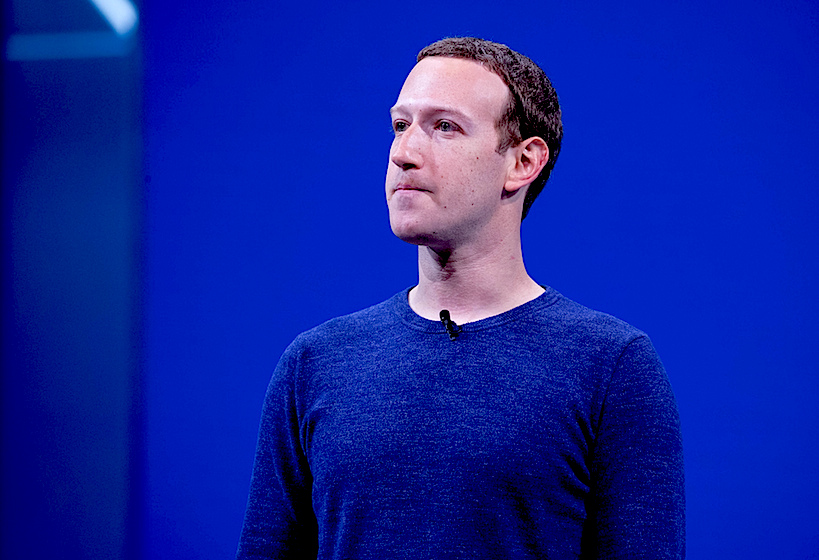 POLICY
POLICY
 POLICY
POLICY
 POLICY
POLICY
When Facebook Inc. Chief Executive Mark Zuckerberg sat down with Recode’s Kara Swisher for an interview published Wednesday, he discussed the issues in which he has been embroiled over the past year or so, from conspiracy theories appearing on Facebook to whether he should keep his job after the Cambridge Analytica data leak scandal.
But what really caught people’s attention, not surprisingly, was Zuckerberg’s contention that Holocaust deniers have the right to appear on the platform.
“I find that deeply offensive,” Zuckerberg (pictured) said about Holocaust denial. “But at the end of the day, I don’t believe that our platform should take that down because I think there are things that different people get wrong. I don’t think that they’re intentionally getting it wrong.”
Zuckerberg also discussed the controversial site Infowars, led by the blustery Alex Jones. He said it would remain on Facebook, although the company would “reduce the distribution of that content.” The page, though, would not be censored.
The spread of misinformation is a problem he admitted but alluded to the fact that over moderation itself can be dangerous. It’s when misinformation could lead to physical harm that Facebook takes action, he said.
“The principles that we have on what we remove from the service are, if it’s going to result in real harm, real physical harm, or if you’re attacking individuals, then that content shouldn’t be on the platform,” he said.
He mentioned the Sandy Hook school shooting, something Alex Jones said was a hoax. “I also think that going to someone who is a victim of Sandy Hook and telling them, ‘Hey, no, you’re a liar’ — that is harassment, and we actually will take that down,” he said.
But in using Holocaust deniers as an example, Zuckerberg set off a firestorm of criticism from many people who think Facebook does in fact have a responsibility to do more about such claims on its site. And he quickly tried to backtrack as a result, sending Swisher a followup email.
“I personally find Holocaust denial deeply offensive, and I absolutely didn’t intend to defend the intent of people who deny that,” he wrote.
Facebook also felt it needed to issue a statement after the interview relating to what Zuckerberg said about misinformation and how Facebook would treat it: “Reducing the distribution of misinformation —rather than removing it outright— strikes the right balance between free expression and a safe and authentic community,” said the statement. “There are certain forms of misinformation that have contributed to physical harm, and we are making a policy change which will enable us to take that type of content down.”
But because this wasn’t any different from what Zuckerberg actually had said, it’s clear that controversy over what kind of content will appear, and should appear, on Facebook isn’t going to die down anytime soon.
Support our open free content by sharing and engaging with our content and community.
Where Technology Leaders Connect, Share Intelligence & Create Opportunities
SiliconANGLE Media is a recognized leader in digital media innovation serving innovative audiences and brands, bringing together cutting-edge technology, influential content, strategic insights and real-time audience engagement. As the parent company of SiliconANGLE, theCUBE Network, theCUBE Research, CUBE365, theCUBE AI and theCUBE SuperStudios — such as those established in Silicon Valley and the New York Stock Exchange (NYSE) — SiliconANGLE Media operates at the intersection of media, technology, and AI. .
Founded by tech visionaries John Furrier and Dave Vellante, SiliconANGLE Media has built a powerful ecosystem of industry-leading digital media brands, with a reach of 15+ million elite tech professionals. The company’s new, proprietary theCUBE AI Video cloud is breaking ground in audience interaction, leveraging theCUBEai.com neural network to help technology companies make data-driven decisions and stay at the forefront of industry conversations.